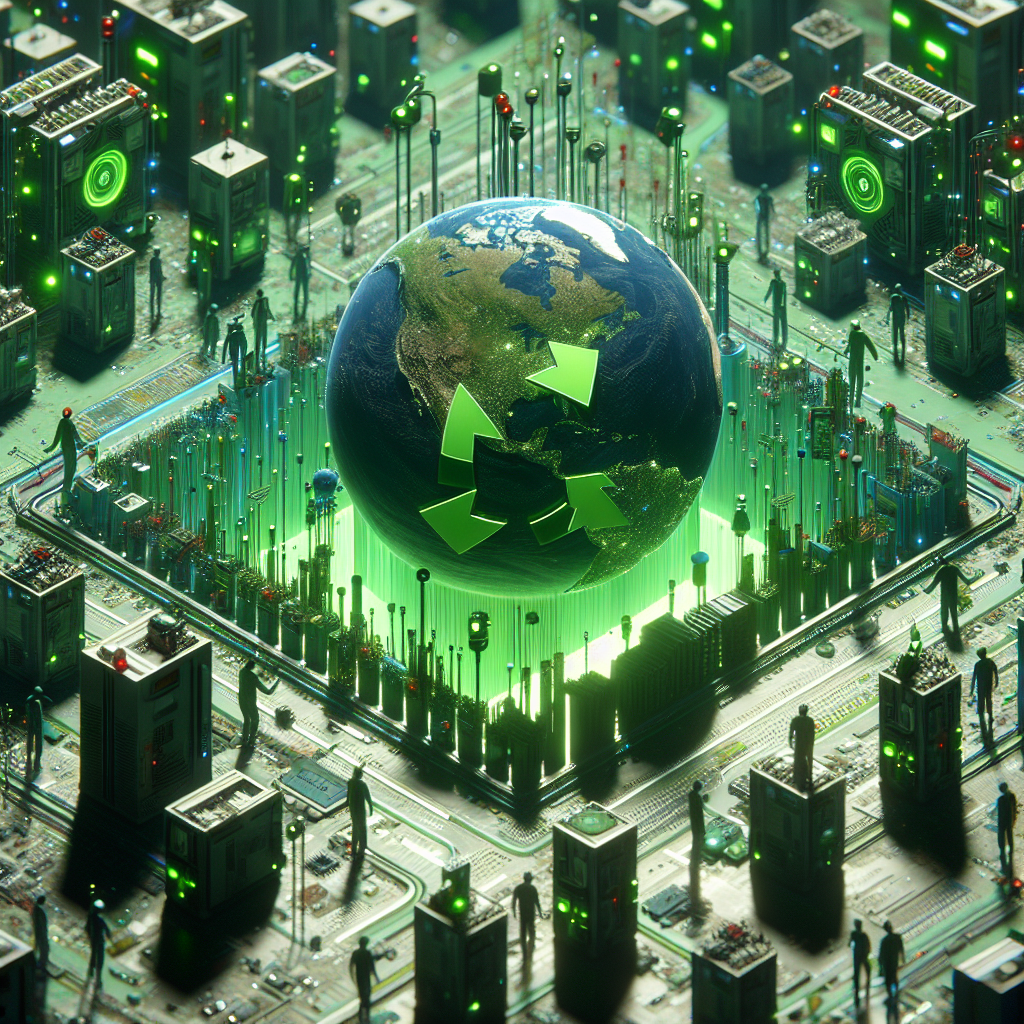Blog Ecobraz Eigre

Circular economy 4.0: reverse logistics of electronic components with sensors and real-time data
Circular Economy 4.0 revolutionizes the reverse logistics of electronic components by integrating smart sensors and real-time data. This technological advance enables precise tracking, optimization of reuse processes and significant reduction of electronic waste, boosting sustainability and efficiency.
Introduction to Circular Economy 4.0
Circular Economy 4.0 represents the evolution of the traditional circular economy combined with Industry 4.0, using digital technologies to promote the reuse, repair and recycling of materials. In the context of electronic components, this approach is especially critical due to the high rate of obsolescence and the increasing volume of waste generated globally.
The importance of reverse logistics for electronic components
Reverse logistics consists of the process of returning raw materials and used products for reuse or proper disposal. For electronic components, this process is essential, as it allows for the recovery of valuable materials such as gold, silver and copper, as well as reducing the environmental impact caused by improper disposal. Incorporating advanced technologies enables greater efficiency and transparency in this cycle.
How smart sensors transform reverse logistics
Smart sensors are devices capable of collecting specific data from electronic products during their life cycle, such as environmental conditions, time of use and the condition of the component. Equipped with IoT (Internet of Things) connectivity, they transmit information in real time to digital platforms, facilitating agile decisions on collection, sorting, maintenance or disposal.
Real-time data and the optimization of reuse
The use of real-time data makes it possible to monitor the flow of reverse electronic components with high precision. This data helps identify critical points in the logistics process, allowing immediate adjustments to avoid delays or losses, as well as improving the assessment of the condition of components, ensuring that only items in suitable condition are reused or recycled.
Benefits of integrating sensors and data for sustainability
Integrating smart sensors with real-time data analysis strengthens sustainability by reducing the volume of electronic waste and optimizing the use of natural resources. This practice promotes energy savings, reduced emissions of polluting gases and extends the life cycle of materials, directly contributing to a healthier environment and reducing pressure on waste management systems.
Challenges and future prospects
Despite advances, implementing circular economy 4.0 with sensors and data faces challenges such as the initial cost of technologies, the need for interoperability protocols between devices and the security of the data collected. However, the outlook for the future is promising, with the steady advance of 5G technology, artificial intelligence and greater environmental awareness increasing the potential for adoption and success of these practices.
Final thoughts
The integration of circular economy 4.0 with reverse logistics of electronic components using sensors and real-time data is a powerful tool for promoting sustainability and efficiency in the electronics sector. By optimizing reuse processes, it is possible to reduce environmental impacts and foster a more responsible and innovative production chain.

Deixe um comentário
O seu endereço de e-mail não será publicado. Campos obrigatórios são marcados com *